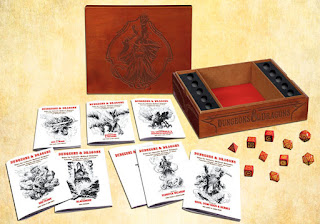Skills in D&D - And in RedNext (B/X-5e hack)

Skills is a problem. Always has been. It's a problem to have them and a problem not to have them. Back in the day, I considered myself a skill-aficionado. The thought that not having skills could be a well-considered feature of a system didn't really occur to me. These days, I am between two stools of appreciating the advantages to not having skills and still liking skills for the way it helps to distinguish and characterise characters. And this is why I don't like 5e skills - they are too generic and basic. They don't actually say anything about the character. We have skills in my 5e group, but I can't see we've used them for much other than 'guess I can add +2 to that roll'. In other words, they might as well not be there. With that in mind, my baseline is a slight modification of the OSR standard: Anyone can more or less try anything. For my 5e OSR document, I edited out all skill references to take as my baseline. Sort of. Actually, ski...



